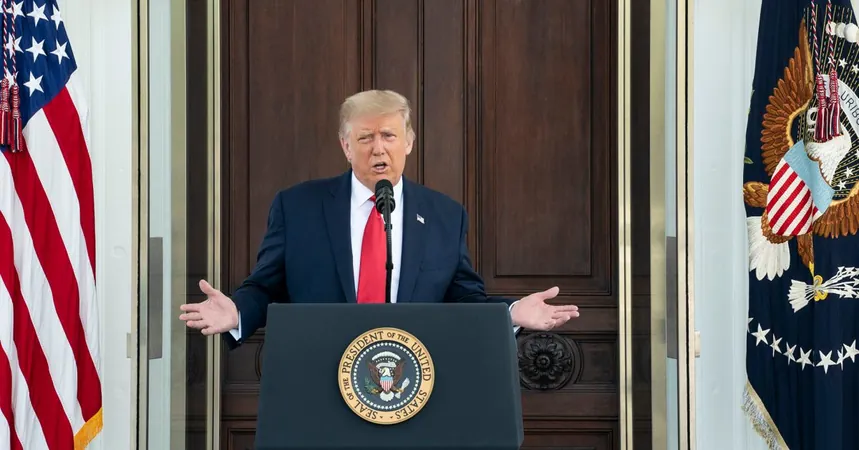
Other CEOs Eager to Emulate Tim Cook's Relationship Tactics with Trump
2024-11-25
Author: Ting
In light of an evolving political landscape, many CEOs from leading U.S. companies are reportedly looking to adopt Tim Cook's unique approach to engaging with the Trump administration. A groundbreaking report reveals how Cook’s strategy not only shaped Apple's success but also allowed the tech giant to navigate complex political waters with ease.
A Rocky Relationship
The relationship between Tim Cook and former President Donald Trump has been anything but straightforward. There were notable disagreements, particularly during the high-profile 2016 Apple versus FBI litigation regarding encryption and data privacy. Trump publicly suggested that consumers boycott Apple products, signaling the tension between corporate interests and government demands. Moreover, Cook’s vocal opposition to Trump’s immigration policies in 2017 highlighted the contrasting ideologies at play.
Critics were quick to condemn Cook for his interactions with Trump, especially when he was accused of claiming credit for bringing back U.S. manufacturing jobs without acknowledging Apple’s long-standing presence in that area.
Decoding Cook’s Engagement Strategy
Despite the challenges and criticisms, Cook maintained that direct engagement is essential in a divided political climate. He articulated his philosophy of being proactive rather than reactive, stating the importance of influencing decisions even amid disagreement. In his own words, “You don’t change things by just yelling; you change things by showing everyone why your way is the best.”
The Wall Street Journal uncovered that Cook's straightforward approach involved bypassing layers of corporate bureaucracy. Instead of relying on lobbyists or governmental relations teams, he chose to communicate directly with Trump through private conversations and dinners. This personal rapport allowed Cook to present key data points in a simplified manner, focusing on one major issue at a time, which facilitated productive discussions.
This strategy played a crucial role in securing exemptions for tech imports from tariffs and addressing antitrust concerns directly with the then-President, illustrating the effectiveness of open dialogue in political relations.
The Challenge of Imitating Success
Now, as other CEOs look to replicate Cook’s successful tactics, experts caution that emulation may not come easily. While Cook's approach is simple in concept, the execution requires an established rapport—something not all corporate leaders possess. The Wall Street Journal notes that many high-profile executives are keen to foster favorable relationships with the incoming administration, yet gaining access to Trump for those without prior connections could prove to be a significant hurdle.
Tim Cook's strategy underscores the importance of adaptability in corporate governance, particularly in a hyper-partisan environment. As the business landscape continually shifts, the lessons learned from Cook’s interactions with Trump could serve as a guidepost for future leaders aiming to bridge the divide between corporate America and politics.
As new administrations take office, the question remains: will other CEOs have the courage and acumen to follow Tim Cook's lead, or will they falter in the face of complex political dynamics? Only time will tell if they can turn this ambitious playbook into a recipe for success.





 Brasil (PT)
Brasil (PT)
 Canada (EN)
Canada (EN)
 Chile (ES)
Chile (ES)
 España (ES)
España (ES)
 France (FR)
France (FR)
 Hong Kong (EN)
Hong Kong (EN)
 Italia (IT)
Italia (IT)
 日本 (JA)
日本 (JA)
 Magyarország (HU)
Magyarország (HU)
 Norge (NO)
Norge (NO)
 Polska (PL)
Polska (PL)
 Schweiz (DE)
Schweiz (DE)
 Singapore (EN)
Singapore (EN)
 Sverige (SV)
Sverige (SV)
 Suomi (FI)
Suomi (FI)
 Türkiye (TR)
Türkiye (TR)